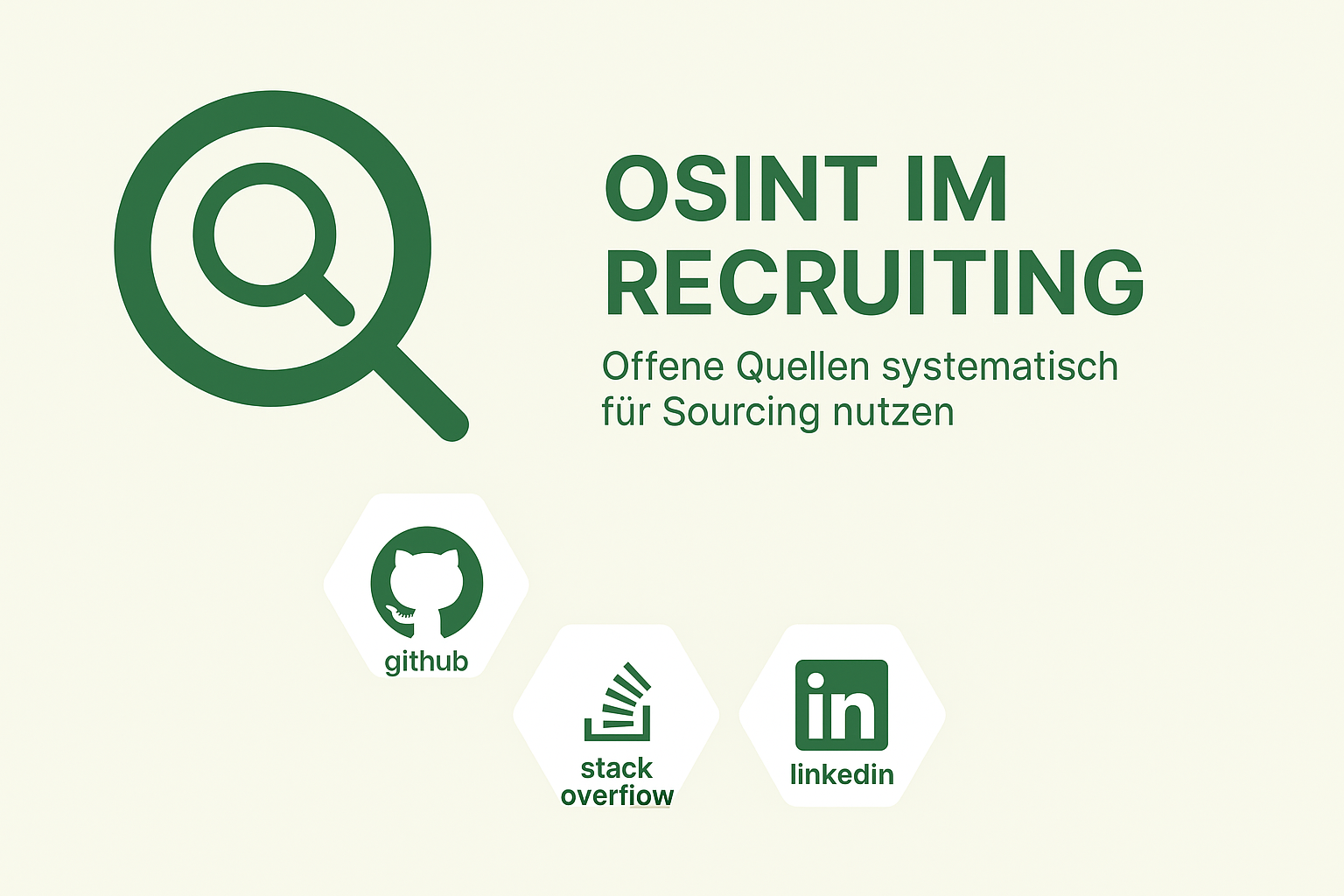Why many briefings cost time but do not create clarity
New role, short kick-off, PDF with requirements - isn't that enough as a recruiting briefing? Exactly not. Many briefings provide information, but no orientation. What is discussed there often sounds plausible - but remains superficial. It's all about job titles, salary ranges and benefits. But these are not strategic cornerstones - they are hygiene factors.
What is missing is a structured examination of the role: Why does this position exist at all? Which tasks determine success or failure? And what misunderstandings are already programmed if you just get started? Such questions are often not asked - or not answered.
The result: sourcing becomes trial and error. Recruiting teams grope in the dark, lose time - and come up with proposals that are not convincing. If you don't take the beginning of a mandate seriously, you'll pay the price later on in the form of too few matches, frustrated Hiring Managers or - even worse - bad attitudes.
The right questions: What you need to know before you search
A professional recruiting briefing is not a request for data - it is a methodical elaboration of the true requirements. Anyone who only asks for keywords, skills and tools at this point is missing the opportunity to think strategically.
Instead, you should delve deeper:
- What should this person achieve in the first 6 months?
- Which topics in the company are linked to this role?
- Are there stakeholders whose requirements have been overlooked so far?
- Which competences are indispensable - and what is negotiable?
- How can the "success" of this person be measured in concrete terms?
These questions not only lead to a better requirements profile - they also make the role connectable in the market. Because only those who understand the reality behind the job title can Sourcing build a narrative - and convince candidates.
Recruiting briefing is not information gathering - it's expectation management
Many recruiters experience the briefing as a kind of acceptance: the hiring manager explains what he or she is looking for and the recruiting team nods. But this is exactly where the problem begins. Because the question is not just: What does the department want? But rather: Is this realistic - in this market, with this salary, on these terms?
A good briefing therefore also contains a dose of rebuttal. It provides market data, empirical values and benchmarks. It checks whether the person you are looking for even exists in reality - and in what form. And it goes beyond describing the position: what can candidates expect from the collaboration, what are deal-breakers, which narratives work in the market?
If you think this way, you save yourself endless discussions about "unsuitable" profiles in the further process - because the basis is clear. Expectation management is not a nice side effect - it is the centre of successful recruiting.
What you do when the hiring manager doesn't know what they want
The most common case: the role is vague, the need unclear, the expectation diffuse. Many recruiters react with frustration or withdrawal. Yet this is precisely the moment when recruiting becomes real consulting.
Now it's all about structure, market knowledge and communication. If you develop hypotheses, show examples and organise them mentally, you will gain enormous confidence. Like this:
- "I see three models in comparable companies - do we want to discuss them?"
- "Would it be conceivable to focus the role more on project management - or do you need operational capacity?"
- "If we were to introduce two people today: Who would you rather hire - and why?"
These scenarios turn a vague order into a precise target image. And they prevent you from working with the wrong profiles for months on end.
If you ask wisely, you don't have to justify it later
A strong briefing is not just a nice prelude - it is the foundation for everything that follows. Recruiting is successful when it is based on clear hypotheses, harmonised expectations and realistic assessments. If you postpone the briefing or deal with it superficially, you will save time - but only in the short term.
Because what has not been clarified will emerge later: as friction, misunderstanding or mismatch. That's why it's worth considering the briefing not as a duty, but as a strategic instrument.
Only those who ask well can search well. And only those who search well can deliver.
Do you want real recruiting strategies instead of disorientating search assignments? Then talk to us. indivHR is the IT recruitment consultancy that doesn't just search - it creates clarity.
BOOK A NON-BINDING AND FREE CONSULTATION HERE





